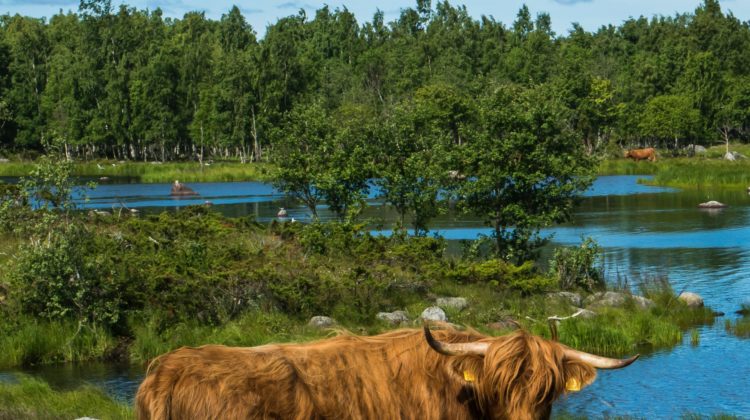
This article lays out the exciting science behind FutureFeed®.
What is FutureFeed®?
According to the CSIRO:
FutureFeed is an innovative livestock feed supplement that utilises a specific type of seaweed which can increase production and reduce methane emissions simultaneously.
— CSIRO
Essentially, research by the CSIRO identified that a specific type of seaweed, when mixed with the feed of ruminant animals like cows and sheep, can significantly reduce or even eliminate methane emissions. This means that FutureFeed could be an important tool to reducing the impact of the global agricultural industry on climate change by reducing one of the most potent greenhouse gases – methane.
The seaweed’s scientific name is Asparagopsis taxiformis, and it is sometimes known as red algae. Asparagopsis taxiformis produces bromoform, which scientists believe is the active ingredient in reducing methane emissions in livestock such as cows.
How does it work?
Research trials are ongoing, however one of the definitive early trials indicates that inclusion of asparagopsis in the diet of cattle of more than 2% of feed reduced gas and eliminated methane production in the fermentations. It is theorised that the presence of bromoform inhibits methanogenic bacterial fermentation.
How does it help farmers?

Livestock feed supplementation with FutureFeed® can help farmers in a number of ways.
Firstly, it allows livestock farmers to significantly reduce the contribution of ruminant animals to climate change. This improves the sustainability of livestock production.
Secondly, research showed that it helped the animals convert more energy into growth. This can help improve the ability of the agricultural sector to feed the growing global population, and improve the profitability of farms by converting more inputs into outputs. Helping to maximise feed efficiency improves the economics of food production for farmers.
Where do I find FutureFeed®?
Currently, it is being produced by a number of companies in limited quantities on a trial basis. As these companies improve their production capacity, FutureFeed® will become increasingly available through grain and feed distribution supply chains.
Image Credit: Photo by Jaakko Kemppainen on Unsplash